Are Space Heaters Safe? Dangers & Safety Tips
-

- Last updated:
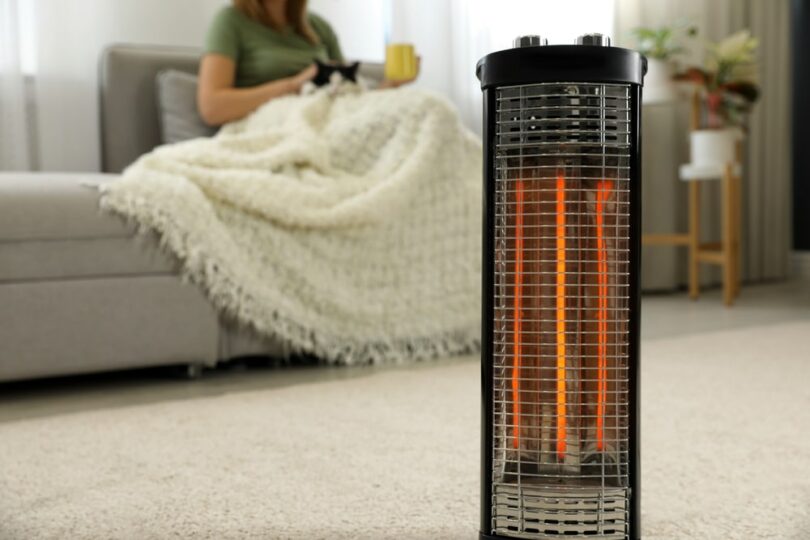
Space heaters are one of the many essentials an American cannot do comfortably without. They warm up rooms and prevent pipes from freezing down to the bursting point. However, as we will find out, space heaters are not 100% safe. Read on below to find out why, as well as how to keep your home safe while using one.

Dangers of Space Heaters
The most prevalent threat related to space heaters is fire. According to the Consumer Product Safety Commission, electric space heaters are responsible for more than 1,000 fires each year. They result in almost 50 deaths and millions of losses annually.
Despite such dire figures, modern space heaters are much safer than they used to be. If you rely on a space heater for supplemental heat, it’s imperative to make safety a priority.
The 9 Tips To Using a Space Heater Safely
There are a few things you can do to ensure your space heater is as safe as possible:
1. Review Warning Labels and Instructions for Safety Certifications
Check if your space heater has a safety certification label from a respected testing organization, such as CSA Group, Intertek, or Underwriters Laboratories.
Safety labels indicate that the heater has been tested and meets minimum requirements to be used indoors for human beings.

2. Check for Safety Features
When shopping for a space heater, make sure to choose one that features the following safety features:
Automatic Shut-Off Function
The auto shut-off function is among the most important features a space heater can have. This feature allows a space heater to shut off automatically upon detecting imminent danger. That means if the heater overheats internally, tips over for some reason, or experiences a malfunction, the device implements an auto-safety shut-off feature that will automatically turn off the space heater to reduce the risk of fire accidents.
A Grill
A space heater has a rotating fan and heating coils, among many other things. While a rotating fan may not cut off your fingers if accidentally touched, the impact will result in extensive tissue damage.
To prevent that, every space heater has a grill. A grill is a framework of metal roads that forms a boundary between a rotating fan and your hands.
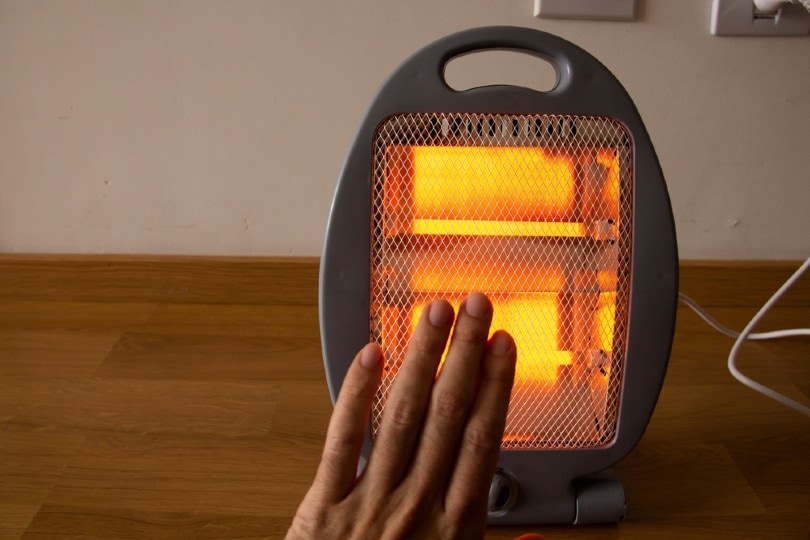
Overheat Sensors
Usually, your space heater will overheat as a result of not being situated in a clear area or tipping over. An overheat protection feature indicates that the space heater has an internal safety sensor. Sometimes called a thermostat, it shuts off the system when the temperature reaches a certain limit.
With overheating sensors in place, users will also be protected from accidental fire.
3. Position It At Least 3 feet from Anything Flammable
Proximity to flammable objects has been regarded as the leading cause of space heaters igniting fires.
Given that it’s a heat source, the National Fire Protection Association (NFPA) recommends leaving at least a 3-foot gap between the space heater and any object that can burn. Some manuals list pillows, furniture, papers, bedding, and curtains as objects to stay away from. Other associations like the Association of Home Appliance Manufacturers (AHAM) recommend supplementary precautions, including keeping away from materials like matches and paint.
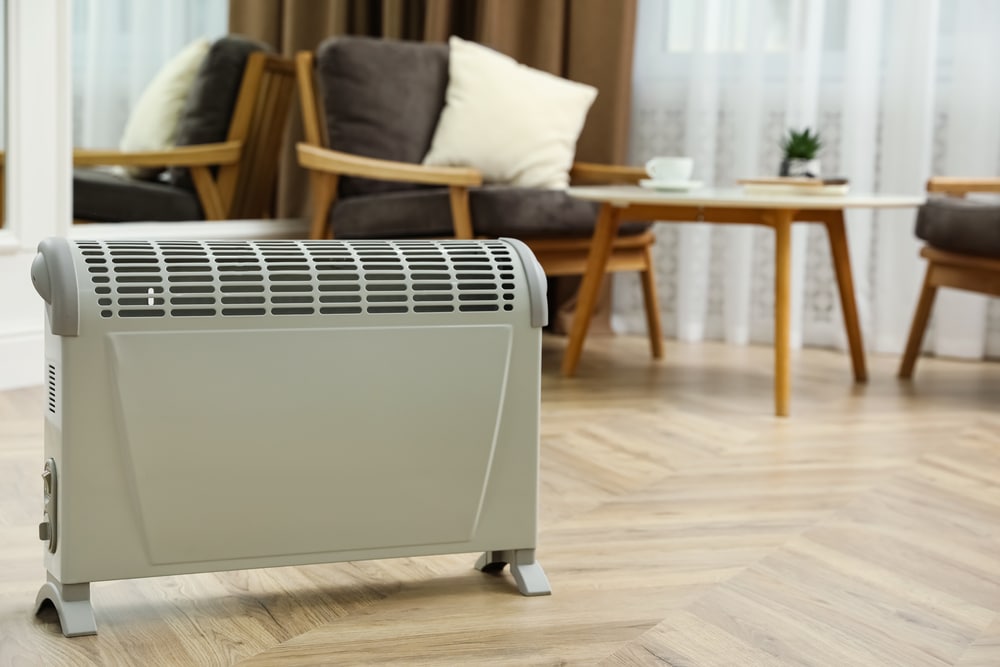
4. Avoid Water
Space heaters don’t blend with water. Therefore, you should always place them as far away from any moisture as possible. And if your heater model is designed for use around water, it should only be used in the bathroom. Never use it to dry bed sheets or clothes since this can result in a serious safety issue if your cloth catch fire.
Another risk of water-heater accidents is electrocution. If water runs through an electric heater’s wiring system, you are likely to be electrocuted, or the appliance may explode.
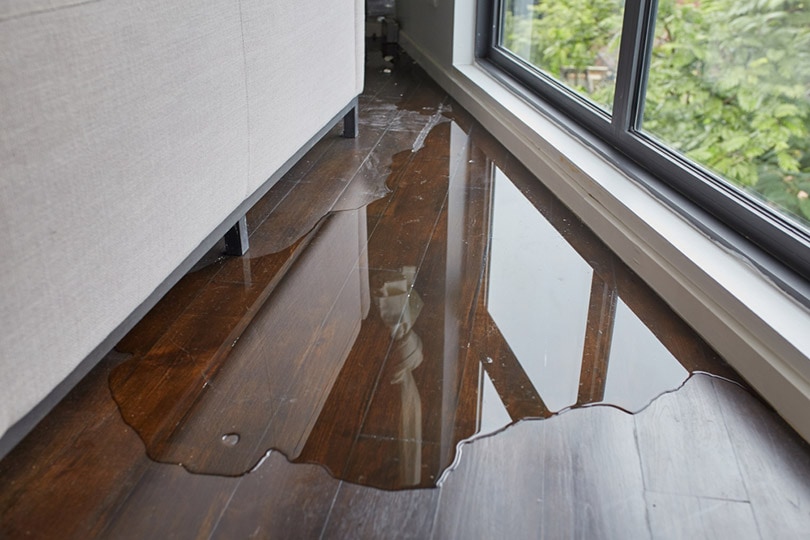
5. Never Leave the Heater Alone
The best way to prevent fire is to remain in the room while the space heater is running- and supervise it. That means never leaving it running when you leave the room or doze off. Leaving it unattended increases the chances of fire hazards.
After you’re done using the space heater, turn it off and unplug from the electric source. If your home is well insulated, it will certainly remain fairly warm even after switching off your space heater.
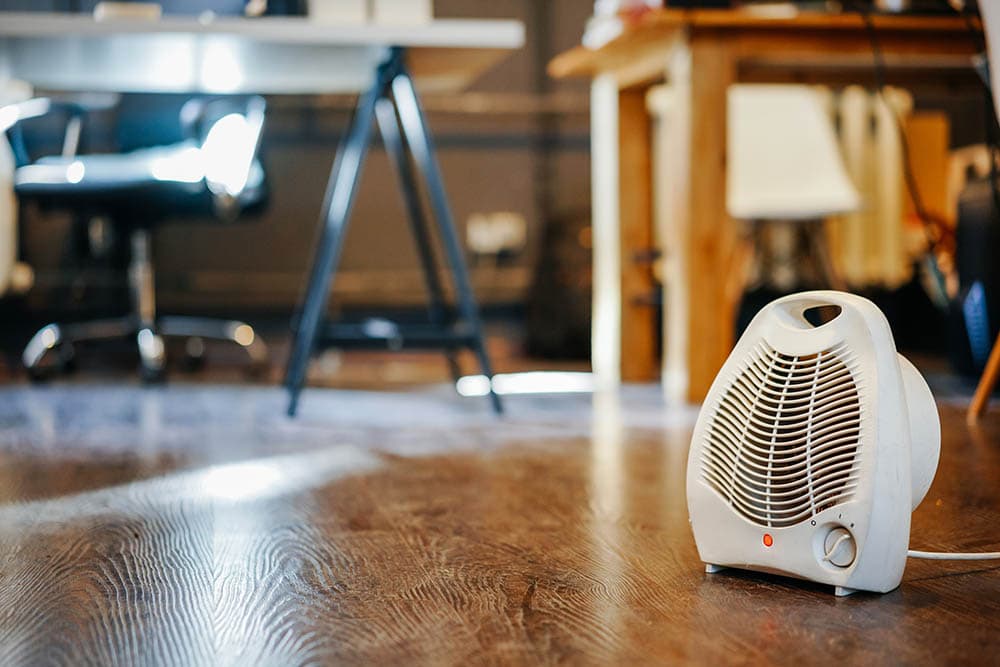
6. Mind Your Heaters’ Location
There are two major types of heaters, electric and fuel-burning heaters. Electric heaters are good indoors, away from potential hazards such as snow and rainwater.
In contrast, fuel-burning heaters such as propane heaters, even though they produce the strongest heat, are very dangerous indoors. They convert hydrocarbons in the fuel to carbon monoxide gas which has deadly consequences. Use them indoors if you have CO sensors or your home is well ventilated.
For your family’s safety, it’s prudent to stick with the small electric space heater. Also, teach kids to avoid them or what to do if smoke starts streaming out of the heater.
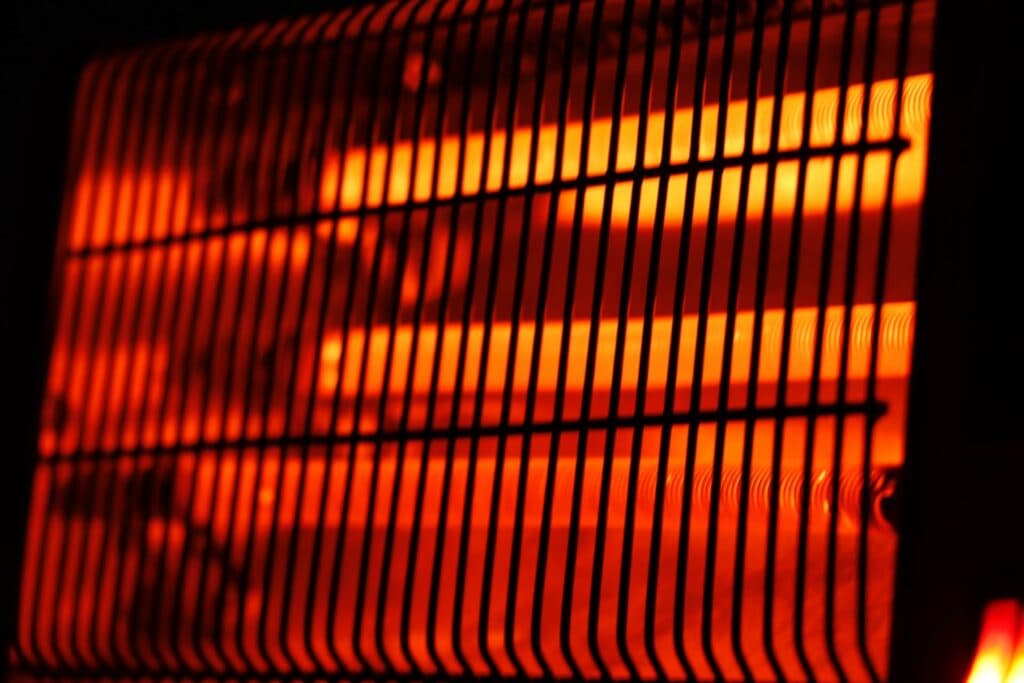
7. Keep Pets and Kids Away
Just like Edwardian residents wouldn’t leave a candle within reach of curious pets and children, the same applies to space heaters. Avoid placing it in a hallway or high-traffic area- this way, your pets or children won’t run into it. Some heaters can actually be wall-mounted to elevate safety.

8. Check for signs of malfunction
While many modern space heaters have safety functions to switch off when not working well, older models, specifically oil-filled heaters, don’t work in a similar fashion.
One sign you should be vigilant of is the gas heaters’ flame colors. A blue flame indicates the space heater is working properly, but an orange flame is a sign there is a problem with your heater and should be turned off immediately.
In electric heaters, monitor how the LEDs light up. Flickering lights are signs your heater is malfunctioning. Turn it off immediately.
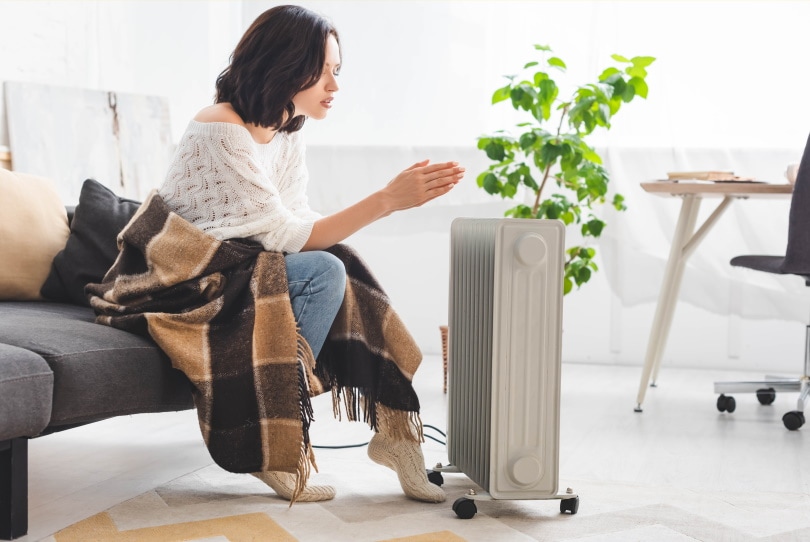
9. Never Plug Your Space Heater Into Power Strips or Extension Cords
When powering your space heater, the United States Department of Energy recommends plugging it directly into a wall outlet without using an extension cord or power strip.
An average space heater generates up to 1,500 watts. Therefore, using it with power strips or extension cords that can’t handle the same wattage can cause a fire.
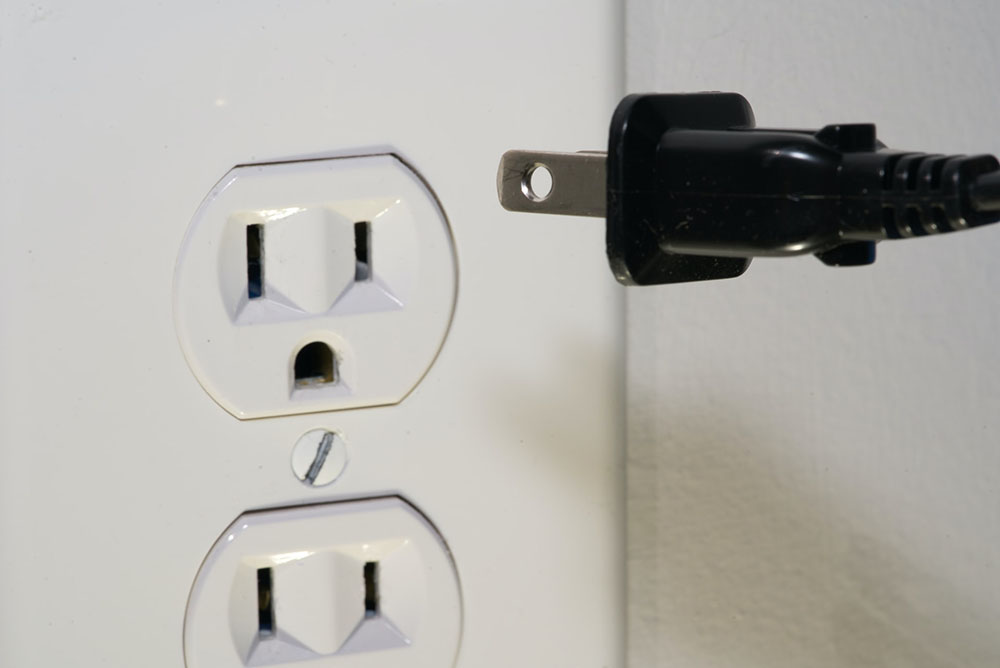

Conclusion
Using a space heater is relatively safe when certified by a reputable organization. Additionally, avoid water or flammable materials near it and teach your kids about its dangers.
- https://www.nytimes.com/2020/12/11/realestate/space-heater-safety-tips.html
- https://www.mysouthernhealth.com/space-heaters-are-handy-but-know-the-hazards/
- https://www.consumerreports.org/space-heater/space-heater-safety-tips-a1096367334/
- https://www.enercare.ca/blog/home-safety/six-safety-tips-for-using-a-space-heater
- https://edition.cnn.com/2022/01/11/health/space-heater-safety-tips-wellness/index.html
- https://www.usatoday.com/story/tech/reviewed/2022/01/11/space-heater-safety-tips-use-space-heater-safely-reduce-fire-risk/9174977002/
Featured Image Credit: New Africa, Shutterstock
Contents
